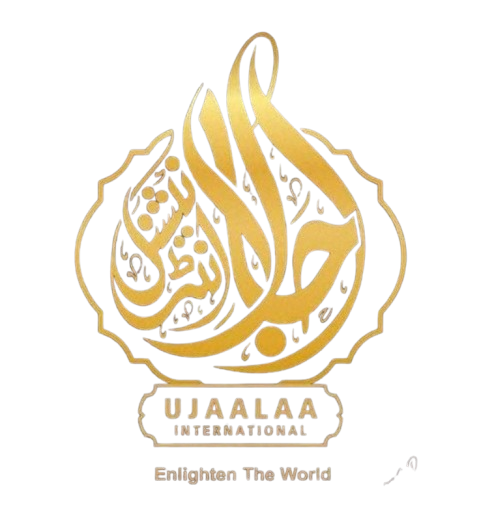Zakat, as one of the five pillars of Islam, is a powerful mechanism for supporting those in need, particularly in underserved communities. It plays a crucial role in uplifting communities by addressing their most basic needs, including education, healthcare, and other essential services. By ensuring that resources are allocated to the most vulnerable, Zakat donations can contribute to sustainable development and long-term improvements in the lives of individuals and communities.
1. Supporting Education for Underprivileged Children
Education is one of the most transformative gifts that can be provided to children in underserved communities. Zakat donations can fund scholarships, build schools, and provide necessary educational materials, including books, uniforms, and technology. By making education accessible, Zakat helps break the cycle of poverty, offering children opportunities to build better futures for themselves and their families. Education equips individuals with the skills they need to gain employment, raise their standard of living, and contribute positively to society.
Moreover, providing education through Zakat also helps combat illiteracy, empowering the community with knowledge that can lead to improved economic prospects and greater social mobility.
2. Improving Healthcare Access
Healthcare is a basic human right, but many underserved communities face significant barriers to receiving proper medical care due to lack of resources, healthcare facilities, or trained medical professionals. Zakat donations can be used to build healthcare infrastructure such as clinics and hospitals, fund medical supplies, and support the training of healthcare workers in remote areas.
Additionally, Zakat can provide funding for medical treatment for those unable to afford essential healthcare, including surgeries, medications, vaccinations, and maternal and child health services. This investment in healthcare not only saves lives but also improves the quality of life for individuals and families who would otherwise be unable to access treatment.
3. Addressing Hunger and Malnutrition
Many underserved communities suffer from food insecurity, which leads to malnutrition and stunted growth, particularly in children. Zakat can be used to fund food programs that provide nutritious meals to families and children in need. This includes the establishment of food banks, community kitchens, and feeding programs.
By addressing hunger through Zakat, communities can reduce the prevalence of malnutrition, which is a major cause of health problems and developmental delays in children. Adequate nutrition helps children grow, thrive in school, and reach their full potential, contributing to the overall well-being of the community.
4. Supporting Clean Water and Sanitation Projects
Access to clean water and proper sanitation is another basic necessity that is often lacking in underserved areas. Zakat donations can fund water purification systems, the construction of wells, and the installation of sanitary facilities. Clean water and good hygiene practices significantly reduce the incidence of waterborne diseases, leading to healthier communities.
By investing in these critical infrastructures, Zakat contributes to the overall health and sustainability of underserved populations, making it easier for them to live healthy lives and reducing the burden on already overworked healthcare systems.
5. Providing Shelter for Homeless Families
Zakat can also be used to provide housing for families living in poverty or without shelter. Many people in underserved communities struggle to find safe, affordable places to live. By building affordable housing and offering rental assistance, Zakat helps provide families with a sense of security and stability.
Stable housing is essential for the well-being of children, as it creates a safe environment for them to grow and learn. It also provides families with the ability to focus on other aspects of their lives, such as securing stable jobs and improving their economic conditions.
6. Supporting Small-Scale Entrepreneurs and Job Creation
Zakat can play a significant role in supporting small-scale entrepreneurs and creating job opportunities. In underserved communities, many individuals are skilled but lack the capital to start or grow a business. Zakat donations can be used to provide microloans or grants, helping individuals establish small businesses or expand existing ones.
By fostering entrepreneurship, Zakat not only provides a source of income for individuals but also contributes to the creation of jobs in the community. This can reduce unemployment rates and improve the overall economic condition of underserved areas.
7. Assisting Vulnerable Groups with Special Needs
Many communities face challenges in supporting vulnerable populations such as the elderly, disabled, and orphans. Zakat can be directed toward initiatives that provide care and assistance to these groups, such as home care services for the elderly or special education for children with disabilities.
By addressing the needs of vulnerable populations, Zakat ensures that no one is left behind and that every individual in the community has the opportunity to live with dignity and respect.
8. Promoting Long-Term Community Development
Zakat is not just about addressing immediate needs; it also plays a key role in promoting long-term community development. By funding programs and projects that enhance education, healthcare, infrastructure, and local economies, Zakat donations contribute to sustainable development. This holistic approach empowers communities to break free from the cycle of poverty and create a self-sustaining and prosperous future.
By focusing on building capacity and infrastructure, Zakat investments lay the groundwork for future growth, providing communities with the tools and resources they need to thrive in the long term.
Conclusion
Zakat donations play a pivotal role in addressing the needs of underserved communities by providing them with access to education, healthcare, shelter, and other essential services. Through careful and strategic distribution, Zakat helps alleviate poverty, promote social justice, and improve the quality of life for those who are most in need. By investing in these key areas, Zakat contributes not only to immediate relief but also to the long-term development and empowerment of communities, ensuring that everyone, regardless of their background, has the opportunity to live a healthy, dignified, and prosperous life.

